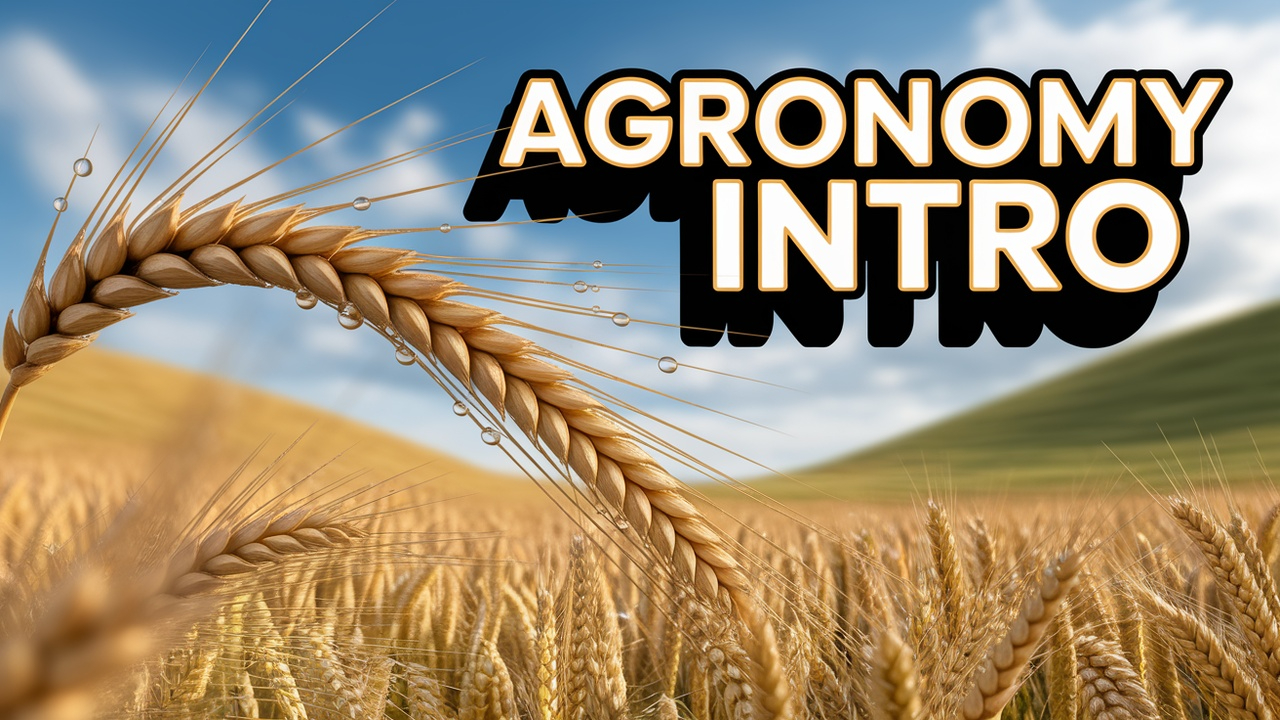
This course provides a foundational understanding of agronomy, focusing on the science and technology of producing and using plants for food, fuel, and fiber. Students will explore essential topics including soil science, crop management, and sustainable agriculture practices.
Course Levels
-
Level 1: Fundamentals of Agronomy
This level introduces the basic concepts and principles of agronomy, including its historical significance and contemporary relevance.
-
Level 2: Soil Science Basics
Students will learn about soil properties, formation processes, and the role of soil in agriculture.
-
Level 3: Crop Physiology
This level focuses on the physiological processes of plants and how these processes affect crop growth and yield.
-
Level 4: Crop Management Practices
Students will explore various management practices that enhance crop production, including planting, irrigation, and pest control.
-
Level 5: Sustainable Agriculture
This level examines sustainable agricultural practices and their importance for environmental conservation and food security.
-
Level 6: Advanced Topics in Agronomy
Students will delve into cutting-edge research and technologies in agronomy, including precision agriculture and biotechnology.
Course Topics
-
Soil Composition and Structure
# Soil Composition and Structure ## Introduction Soil is a complex mixture of minerals, organic matter, water, and air. It is essential for supporting plant life and plays a critical role in the ecos...
-
Introduction to Agronomy
# Introduction to Agronomy Agronomy is the science of soil management and crop production. It involves the integration of various disciplines such as biology, chemistry, ecology, and economics to opt...
-
Water Relations in Plants
# Water Relations in Plants Water is a crucial component for plant life, influencing physiological processes, growth, and development. Understanding how plants manage water relations is essential for...
-
Organic Farming Practices
## Introduction to Organic Farming Practices Organic farming is a holistic approach to agriculture that emphasizes sustainability, biodiversity, and ecological balance. It avoids synthetic fertilizer...
-
Stress Physiology in Crops
# Stress Physiology in Crops ## Introduction Stress physiology in crops refers to the biological responses of plants when exposed to various environmental stresses such as drought, salinity, extreme ...
-
Policy and Economic Aspects of Sustainable Farming
# Policy and Economic Aspects of Sustainable Farming Sustainable farming is not only concerned with environmental practices but also with economic viability and supportive policies. This topic explor...
-
Soil Formation Processes
# Soil Formation Processes Soil formation is a complex process influenced by various environmental factors and mechanisms. Understanding these processes is crucial for agronomy, as they directly impa...
-
Integrated Pest Management (IPM)
# Integrated Pest Management (IPM) Integrated Pest Management (IPM) is a holistic approach to managing pests in agricultural systems. It combines multiple strategies to minimize pest damage while red...
-
Overview of Major Crop Types
# Overview of Major Crop Types Agronomy is the science and technology of producing and using plants for food, fuel, fiber, and land reclamation. Understanding the major crop types is essential for an...
-
Biotechnology and Its Applications
# Biotechnology and Its Applications Biotechnology refers to the use of biological systems, organisms, or derivatives to develop or create products. In agriculture, biotechnology plays a pivotal role...
-
Soil Conservation Techniques
# Soil Conservation Techniques Soil conservation is the practice of protecting soil from erosion and depletion. In agronomy, effective soil conservation techniques are crucial for maintaining soil he...
-
History of Agriculture
# History of Agriculture Agriculture is one of the oldest practices known to humanity, playing a crucial role in the development of civilizations. This topic provides an overview of the evolution of ...
-
Importance of Agronomy in Society
# Importance of Agronomy in Society Agronomy is a branch of agricultural science that deals with the study of crops and the soils in which they grow. It plays a pivotal role in ensuring food security...
-
Crop Development Stages
# Crop Development Stages Understanding the various stages of crop development is essential for effective agronomy, as it influences management practices, yield potential, and overall crop health. Th...
-
Harvesting and Post-Harvest Handling
# Harvesting and Post-Harvest Handling Harvesting and post-harvest handling are critical stages in crop production that significantly influence the quality and quantity of agricultural products. Prop...
-
Genetic Engineering in Crop Production
# Genetic Engineering in Crop Production Genetic engineering, a subset of biotechnology, refers to the direct manipulation of an organism's genes using biotechnology. In agriculture, it has revolutio...
-
Permaculture and Agroecology
# Permaculture and Agroecology Permaculture and agroecology are two innovative approaches to sustainable agriculture that emphasize the importance of ecological principles and local knowledge in food...
-
Precision Agriculture Technologies
# Precision Agriculture Technologies Precision agriculture (PA) is a farming management concept that uses information technology to ensure that crops and soil receive exactly what they need for optim...
-
Soil Types and Their Characteristics
# Soil Types and Their Characteristics Soil is a complex mixture of organic matter, minerals, gases, liquids, and countless organisms that together support life. Understanding the different types of ...
-
Weed Management Strategies
# Weed Management Strategies Weeds are unwanted plants that compete with crops for resources such as nutrients, water, and sunlight. Effective weed management is essential for maximizing crop yield a...
- And 10 more topics...